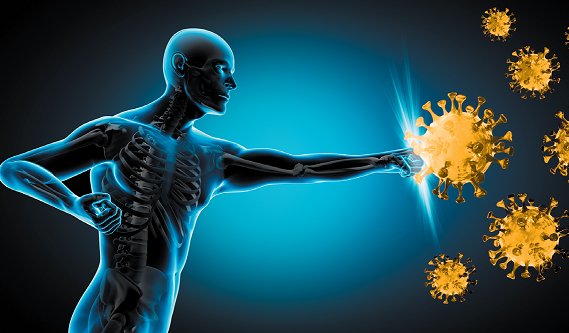Unlocking the Secrets of Holistic Recovery: A Comprehensive Guide for Mind, Body, and Spirit

In a fast-paced world filled with stress and challenges, the concept of holistic recovery has emerged as a beacon of hope for those seeking to heal not just the body, but the mind and spirit as well.
But what exactly does holistic recovery mean?
In this comprehensive guide, we will delve into the intricate web of the mind-body connection, explore spiritual practices that enhance overall wellness, and discuss the pivotal roles of nutrition and physical health.
Whether you're battling addiction, overcoming trauma, or simply striving for a more balanced life, this article aims to provide you with valuable insights and practical strategies to create a personalized holistic recovery plan that resonates with your unique journey.
Join us as we unlock the secrets of holistic recovery, inspiring you to embrace healing in every aspect of your being.
View Our Luxury Cold Therapy Products
Key Takeaways
- Holistic recovery encompasses the integration of mind, body, and spirit for overall wellness.
- Understanding the mind-body connection is crucial in enhancing the effectiveness of holistic recovery practices.
- Incorporating spiritual practices can significantly contribute to a person's overall health and well-being.
- Nutrition and physical health are foundational elements that support the holistic recovery process.
- Developing a personalized holistic recovery plan can help individuals tailor their approach to meet specific needs.
Understanding Holistic Recovery: What It Means
Holistic recovery is an approach that emphasizes healing the whole person rather than merely treating specific symptoms or conditions.
This methodology integrates physical, emotional, mental, and spiritual well-being to promote comprehensive health and recovery.
Understanding holistic recovery means recognizing that individuals are multifaceted beings, and their paths to well-being must acknowledge and nurture every dimension.
This can involve a variety of practices, such as mindfulness, nutrition, exercise, and therapy, all tailored to each person's unique needs.
By fostering balance in all areas of life, holistic recovery not only aims to alleviate existing issues but also empowers individuals to build resilience and sustain long-term wellness.
As more people seek transformative health solutions, embracing the principles of holistic recovery can lead to truly profound and lasting change.
The Mind-Body Connection in Holistic Recovery
The mind-body connection is a profound aspect of holistic recovery, emphasizing the interplay between mental, emotional, and physical health.
Holistic recovery transcends traditional treatments by acknowledging that true healing requires an integration of both mind and body.
This integrative approach encourages individuals to not only focus on physical ailments but also to address emotional barriers and mental challenges that can impede overall well-being.
Techniques such as mindfulness, meditation, and therapeutic practices empower individuals to cultivate self-awareness and emotional resilience, ultimately fostering a more profound healing experience.
By embracing the principles of holistic recovery, individuals can harness the power of positive thinking and emotional balance, leading to improved health outcomes and a more fulfilling life.
Engaging in this holistic pathway instills a sense of empowerment, helping individuals to recognize their capability in overcoming obstacles, reinforcing the belief that recovery is not just about alleviating symptoms but transforming the entire self.
'The mind and body are not separate. What affects one, affects the other.' - Judith Orloff
View Our Luxury Cold Therapy Products
Incorporating Spiritual Practices for Overall Wellness
Incorporating spiritual practices into your healing journey is vital for achieving holistic recovery, a comprehensive approach that addresses not just physical ailments, but also emotional and spiritual well-being.
Engaging in activities such as meditation, mindfulness, and yoga can enhance your sense of peace and purpose, promoting a more balanced lifestyle.
For instance, daily meditation can help reduce stress and increase self-awareness, allowing you to connect deeper with your inner self.
Additionally, exploring practices like gratitude journaling encourages a positive mindset, which can further support your recovery by fostering resilience and emotional strength.
Remember, holistic recovery is not just about treating symptoms; it’s about nurturing your entire being to cultivate a fulfilling and healthy life.
Embracing these spiritual practices opens doors to personal growth, empowers you to overcome challenges, and ultimately leads to a more vibrant, interconnected existence.
Nutrition and Physical Health: Essential Components of Holistic Recovery
Holistic recovery encompasses a comprehensive approach to healing that integrates the physical, mental, and emotional aspects of well-being.
At the heart of this philosophy lies the significance of nutrition and physical health, as they serve as essential components in fostering overall recovery.
Proper nutrition provides the body with vital nutrients necessary for healing, enhancing energy levels, and boosting immunity.
A well-balanced diet rich in whole foods, including fruits, vegetables, lean proteins, and healthy fats, not only supports physical health but also positively impacts mental clarity and emotional stability.
Furthermore, regular physical activity contributes to holistic recovery by releasing endorphins, which naturally uplift mood and decrease stress.
Engaging in exercise routines tailored to individual capacities—whether it be yoga, walking, or strength training—cultivates resilience and promotes a deeper connection between the body and mind.
By prioritizing nutrition and physical health, individuals on their journey to holistic recovery can nurture a balanced lifestyle that fosters both healing and long-lasting wellness.
Mental Wellness Techniques: Mindfulness and Therapy
In the realm of mental wellness, two powerful techniques that have gained significant attention are mindfulness and therapy, both of which align beautifully with the concept of holistic recovery.
Mindfulness encourages individuals to stay present in the moment, allowing them to acknowledge their thoughts and feelings without judgment, which can be particularly beneficial in managing stress and anxiety.
Pairing this practice with therapeutic interventions, such as cognitive behavioral therapy or talk therapy, creates a comprehensive approach to mental health that addresses not only the symptoms but also the underlying issues.
By integrating these techniques into daily life, one can promote a profound sense of inner peace and resilience, paving the way for enduring mental wellness.
Embracing holistic recovery means nurturing the mind, body, and spirit in harmony, which ultimately fosters a more balanced and fulfilling life.
Creating a Personalized Holistic Recovery Plan
Creating a personalized holistic recovery plan is essential for anyone looking to embark on a transformative healing journey.
Holistic recovery focuses on treating the individual as a whole, not just their symptoms or conditions.
This approach recognizes the interconnection of mind, body, and spirit, offering a more comprehensive path to wellness.
Begin by assessing your current state of health and pinpointing areas that require attention—whether they be physical, emotional, or spiritual.
Incorporate practices such as mindfulness, nutrition, and regular exercise to create a balanced routine that suits your lifestyle.
Additionally, seek out support systems, including therapy and community groups, to reinforce your journey towards recovery.
Remember, the path to wellness is not linear; tailor your holistic recovery plan based on your personal needs and progress, ensuring that you address all facets of your wellbeing for sustainable healing.
Frequently Asked Questions
What is holistic recovery?
Holistic recovery is an approach that focuses on healing the entire person – mind, body, and spirit – rather than just addressing physical symptoms.
It incorporates various practices that enhance overall wellness, including mental health strategies, nutritional guidance, and spiritual practices.
How does the mind-body connection play a role in holistic recovery?
The mind-body connection is vital in holistic recovery as it acknowledges that mental and emotional states can significantly impact physical health.
By addressing both mental and physical aspects, practitioners can foster improved health outcomes, reduce stress levels, and enhance overall well-being.
What spiritual practices can I incorporate into my holistic recovery plan?
Spiritual practices can vary widely but may include activities such as meditation, yoga, prayer, journaling, and connecting with nature.
These practices promote self-awareness, emotional release, and a sense of greater purpose, which can be beneficial in the holistic recovery process.
How important is nutrition in holistic recovery?
Nutrition plays a crucial role in holistic recovery as it affects physical health, energy levels, and mental clarity.
A well-balanced diet rich in whole, nutrient-dense foods supports bodily functions and can enhance mental wellness, making it an essential component of any holistic recovery plan.
How can I create a personalized holistic recovery plan?
To create a personalized holistic recovery plan, start by assessing your physical, emotional, and spiritual needs.
Incorporate elements such as nutrition, mindfulness, physical activity, and spiritual practices that resonate with you.
Regularly evaluate and adjust your plan based on how you feel and any changes in your circumstances.






